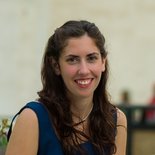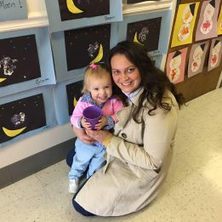|
By Lauren Koenig
It often seems there’s no longer any traditional path for pursuing a career outside medicine or law. The average individual is expected to hold about 12 jobs before the age of 48, and this number is drastically rising as job and tenure prospects change. This ambiguous career path may be especially hazy for students looking to pursue research. Many prospective grad students are drawn to taking gap years between graduation and their return to academia. A decision to take time off can be daunting, and it can be made even more difficult if it means getting “off track” from the expectations outlined by family members, turning down job offers, or deferring acceptance to other schools. When Amy Palubinsky graduated from college with a biochemistry major, she expected to attend medical school. But like many college seniors, she realized that first she wanted to get some real-world experience. So she deferred her med school decision, applied for a lab tech position in a translational neurology lab, and embarked on an unexpected journey to find the ultimate goal: a fulfilling career and work-life balance. Check out an excerpt below from a blog post originally posted by neuroscience PhD candidate Amy Palubinsky on Quartzy: “As a research tech at Johns Hopkins School of Medicine, I spent countless hours under a dissecting microscope and in a tissue culture hood, where I (the chemistry nerd) absolutely fell in love with neurons. Growing primary neuronal cultures is no easy task. Those buggers are picky, hard to grow to maturity, and definitely unlike most other primary cultures or cell lines. And on top of that, the end goal is to harm them with something so you can try to save them. You inevitably end up killing your own hard work most of the time. While at Hopkins, I published papers, took advantage of the employee tuition-remission program, and earned a master’s degree in biotechnology. I was also promoted, got engaged, and then finally decided (six years after undergrad) that I really did love bench work and was ready to become a doctor—just not an MD. Instead, I chose a neuroscience PhD program at Vanderbilt University. The next thing I knew, I was the old lady in class, desperately trying to remember how to effectively study. The first semester was rocky, but not just for me. As with most graduate programs, there was ample attrition in our class size after the holiday break. I’ll admit, it crossed my mind that I had made a major mistake. Perhaps six years was a little too long to take off from rigorous study (lesson learned). But, what kept me invested and enjoying the whole new process despite the struggles and self-doubt was the familiar comfort of still being in a lab environment. Some grad students love science and think they love lab life—until they experience it full-time. But I had an edge. I’d already lived this life and still loved it. I knew what lab size I was looking for during my rotations, and what type of PI I wanted to work for. I understood crazy funding situations, how important training grants were, and how bad science can just plain suck sometimes. But I still wanted it. I also wanted a family, and aligned myself with mentors who understood this. So I soon became the old lady in class who was married with dogs, and then the doctoral candidate with a baby. I’m now the soon-to-be PhD with two kids. My career progression is considered atypical by many, and things have taken me a little longer than planned. But that’s fine by me because I’m very happy, and I love what I do—both in the lab and at the zoo. Did I say zoo? I meant home.” Thanks to Amy and Quartzy for letting us share her story. Do you know a Scientista who took an unusual path before landing their current job? Nominate them at [email protected] so they can be featured on our site! 
About the Author
Lauren is a wildlife biologist currently preparing for graduate school in behavioral ecology. Since obtaining her B.A. in biology from Vanderbilt University, she worked on several wildlife research projects throughout North and South America. She is excited to work with Scientista to increase accessibility to research and expand outreach efforts geared for women in STEM. Her experience in science writing includes an internship with publisher John Wiley & Sons Inc., working as science editor for the Vanderbilt McLaughlin neurology lab, and serving on the staff of her university’s newspaper. In her free time, Lauren enjoys wildlife photography, kayaking, dance, and going to concerts. Comments? Leave them below!
0 Comments
Your comment will be posted after it is approved.
Leave a Reply. |
CONNECT WITH USSUBSCRIBE |
The Scientista Foundation, Inc. All Rights Reserved © 2011-2021 | Based in NY | [email protected]
The Network for Pre-Professional Women in Science and Engineering
The Scientista Foundation is a registered 501(c)(3) -- Donate!
The Network for Pre-Professional Women in Science and Engineering
The Scientista Foundation is a registered 501(c)(3) -- Donate!



 RSS Feed
RSS Feed